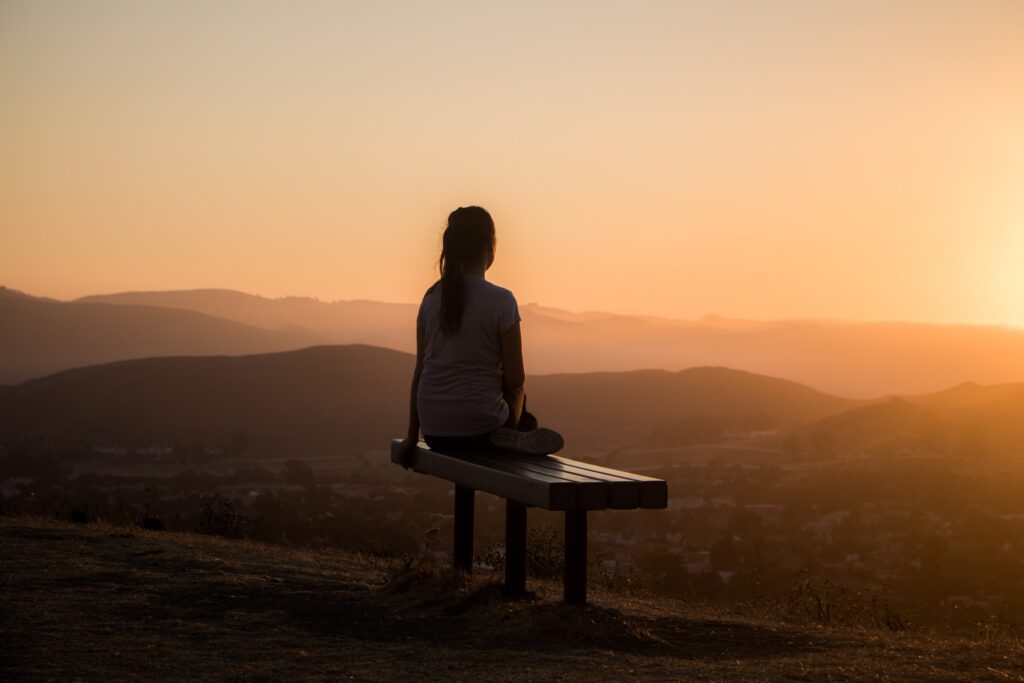Rachel Letham, our resident success coach, talks us through the importance of mindfulness and how meditation can help focus the mind.
“Mindfulness is an amazing tool to be able to use to help us keep calm, reduce overwhelm and stress and establish a nourishing self care practice.
What is mindfulness?
“Mindfulness is simply noticing what is happening in this moment without trying to change anything. It’s about accepting and acknowledging our thoughts, then letting them pass with an understanding that nothing stays the same. It’s about noticing and paying attention to our thoughts without judging them. Mindfulness is a practice, it is never complete because we have to tap into this resource and lean into using it as a self care strategy as our life varies from day to day.
“Mindfulness is about bringing a sense of calm, even in the most challenging moments and acts as a way to remind yourself to have an awareness whenever fear or overwhelm starts to affect your decisions.
“Committing to a long-term mindfulness practice is not always easy; however, with simple, guided mindfulness exercises that inspire inner transformation, choosing to practice mindfulness each and every day becomes much easier. Though practicing mindfulness can at first feel somewhat challenging, mindfulness practice is like anything else we wish to learn – it takes time, commitment, and consistency to build. Like any other habit or skillset we develop, mindfulness soon becomes second nature.
Meditation for mindfulness
“Learning to meditate is one element of building a mindfulness practice. and as World Meditation Day is on May 21st, just after Mental Health Awareness Week finishes, I want to bring you some insight into how you can utilise these tools to better boost your mental wellbeing.
“As the wonderful meditation teacher Nikki Wilson of 10 of Zen says, meditation doesn’t have to be “all bells, smells and bowing to buddha”. There are SO many ways to meditate and the best way to establish a powerful meditation habit is to find the way that works for you. There are numerous apps available to support your meditation journey, allowing you to listen to guided meditations, silent meditations, sound bowls and gongs, focus on different breathing meditations, different voices for guided meditations – the list is endless.
“But ultimately what I’d like you to take from this, is that there is no right or wrong way to meditation. As I always say when it comes to self care “you do you”. Choose the way to mediate that resonates with you and don’t expect it to click into place all at once.
“I’ve been meditating on and off for five years now. Some days I love it, some days I just don’t get into it. Somedays I have ten minutes for the daily calm meditation from the Calm App, somedays I lean into Deepak Chopra’s 21 day meditation series from the Chopra Center. Every day is different because our needs vary and our pace of life and our schedules are different.
“Before meditation, take some time to just sit and breathe, ask yourself what do you really need in this moment. Do you need to lie down, close your eyes and listen to a calming guided meditation? Or do you want to sit in your favourite chair, use a timer and gaze softly out of the window for ten minutes? Maybe you have more time and want to do a deeper piece of work with a sound bath session and meditation for an hour. Find a way to meet your needs to nourish your body, mind and soul.
Taking Mindfulness into nature
“Hosted by the Mental Health Foundation, Mental Health Awareness Week will take place from 10-16 May 2021 in the UK. This year’s theme is ‘Nature’ so if the weather allows, take some time to practice your version of meditation and mindfulness outdoors. Getting close to nature allows us to feel grounded, calm and revitalised.
“With the shift of seasons, now is the time to embrace the outdoors and getting grounded is wonderful for your body, mind and soul. I’d like to share a really simple technique to bring you into a state of mindfulness and spending some time focusing on you, in a quick and easy:
- Find a nice quiet space outside, somewhere you won’t be disturbed for a while and if you feel comfortable, close your eyes.
- Imagine a triangle in front of you. Visualise a wide base to it coming all the way up to a point. This is the shape of the breathing technique.
- Take a nice deep breath in and visualise travelling up the side of the triangle
- When you reach the top, hold your breath for a second
- Then release the breath slowly as you travel down the other side of the triangle and get to the wide base; feeling grounded where you are sitting now
“Repeat this ten times to feel really grounded, it will calm you and open up your senses. As you do, feel the air moving over your skin – what does that feel like? Listen out for sounds that maybe you don’t normally notice, is there something you can smell that you recognise? Tap into your senses to round off this mindfulness practice.”
Thank you Rachel for your insight and for the useful technique. Mental Health Awareness Week will take place from 10-16 May 2021, and those of us here at We Are Wellbeing are asking readers and clients to remain mindful and aware through the month.







